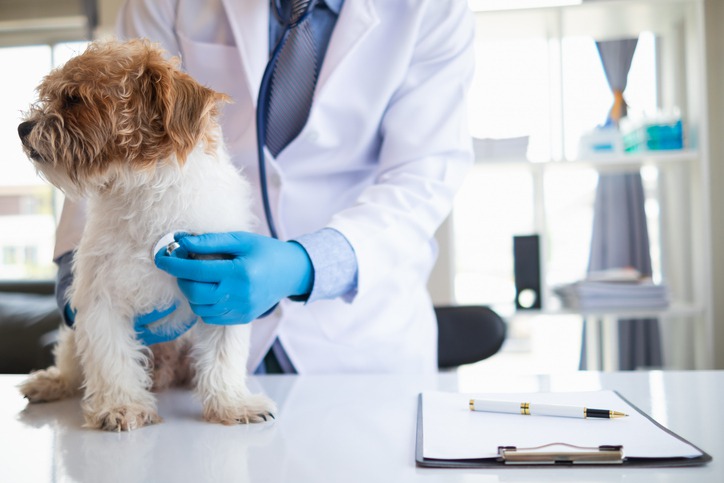How Can I Prevent Heartworm in My Pet
Heartworm is a serious condition that can significantly affect the health and well-being of your pet. It’s important to take the right steps to prevent this disease because it can be difficult and expensive to treat. This article will guide you on how to keep your pet safe from heartworm using simple and effective methods. We’ll cover preventive medications, regular vet check-ups, and lifestyle changes to help your pet stay heartworm-free.
Preventive Medications
The most effective way to prevent heartworm is by giving your pet regular preventive medications. These medications typically come in the form of monthly pills, topical treatments, or injections that your vet can administer. It’s crucial to follow your vet’s advice and stick to a regular schedule.
-
Monthly Pills: Easy to give and can be incorporated into your pet’s diet. While some pets may be picky, you can hide the pill in their favorite treat.
-
Topical Treatments: Applied to your pet’s skin, usually between the shoulder blades. These treatments are absorbed into the bloodstream to provide protection.
-
Injections: Administered by your vet and can last up to six months. This option may be more convenient for pet owners who struggle with monthly treatments.
These preventive measures are highly effective, but they must be given consistently. Missing even one dose can leave your pet vulnerable to infection.
Regular Vet Check-Ups
Regular vet check-ups are essential for early detection and prevention of heartworm. During these visits, your vet will perform a blood test to check for heartworm larvae. This is especially important if you live in an area where heartworm is common.
Besides testing for heartworm, your vet can also monitor your pet’s overall health and provide advice on any concerns you might have. Consistent vet visits can make a big difference in keeping your pet healthy and heartworm-free.
Environmental Management
Heartworm is transmitted by mosquitoes, so controlling the mosquito population around your home can help reduce the risk. Here are some tips:
-
Remove Standing Water: Mosquitoes breed in standing water, so empty any water containers like birdbaths, plant saucers, and buckets.
-
Keep Your Yard Clean: Trim bushes and grass regularly. A clean yard reduces mosquito breeding grounds.
-
Use Mosquito Repellents: There are pet-safe mosquito repellents available that can be used on your pet or around your home.
By managing the environment around your home, you can make it less attractive to mosquitoes and reduce the chances of your pet getting heartworm. When preventing heartworm in your pet, it’s crucial to consult with knowledgeable vets in Kinston, NC. Professional vets can provide comprehensive heartworm prevention plans tailored to your pet’s specific needs.
Regular visits to the vet ensure that your pet’s heartworm preventive measures are working effectively, and any adjustments can be made promptly based on their health status.
Diet and Exercise
A healthy diet and regular exercise can strengthen your pet’s immune system, which can help in preventing heartworm and other diseases. Make sure your pet gets a balanced diet suited to their age, breed, and health needs.
Regular exercise not only keeps your pet fit but also gives you an opportunity to explore different environments and keep an eye on potential mosquito-prone areas. Playtime and walks can be enjoyable for both you and your pet while contributing to overall well-being.
Travel Considerations
If you’re planning to travel with your pet, it’s important to be aware of the heartworm risks in the destination area. Some regions have a higher incidence of heartworm, and it’s essential to take extra precautions during your trip. Before traveling, consult your vet for advice on additional preventive measures and ensure you’re updated on your pet’s heartworm medication. Being cautious during travels can prevent unexpected health issues for your pet.
Sometimes, you might need to travel or be away from home, and it’s important to know your pet is safe. Facilities offering secure boarding for pets can be convenient. These facilities ensure that your pet receives the necessary heartworm prevention treatments in your absence. You can have peace of mind knowing their health needs are being taken care of while you’re away.
Common Signs of Heartworm in Pets
Awareness of heartworm signs can help you seek timely medical intervention. If you notice any of these symptoms in your pet, consult your vet as soon as possible:
-
Coughing, especially after exercise
-
Fatigue and lack of energy
-
Loss of appetite
-
Weight loss
-
Swollen belly due to fluid accumulation
These symptoms can also indicate other health issues, so a proper diagnosis from your vet is essential for the right treatment plan. Early prevention is a vital part of keeping your pet heartworm-free. Clinics offering kitten & puppy vaccinations in Kinston, NC are great examples of specialized services that can protect your pet right from the start.
You can greatly reduce the risk of heartworm and other diseases by getting your young pets vaccinated and on a parasite prevention plan. Early intervention is key to long-term health.
How Heartworm Is Treated
If your pet is diagnosed with heartworm, treatment can be a long and costly process. The treatment usually involves a series of injections to kill the adult worms, along with medications to address any complications. During treatment, it’s crucial to limit your pet’s activity to avoid straining their heart and lungs.
Regular follow-up appointments are necessary to ensure the treatment is working and to monitor your pet’s recovery. It’s a challenging process, which is why prevention is always the better approach.
Final Thoughts
Preventing heartworm in your pet takes a combination of consistent preventive medications, regular vet visits, and making your home environment less mosquito-friendly. By taking these steps, you can protect your pet from a serious and potentially life-threatening disease. Always consult with your vet to create the best prevention plan for your pet. Prevention is not only more cost-effective but also less stressful for you and your beloved furry friend.








